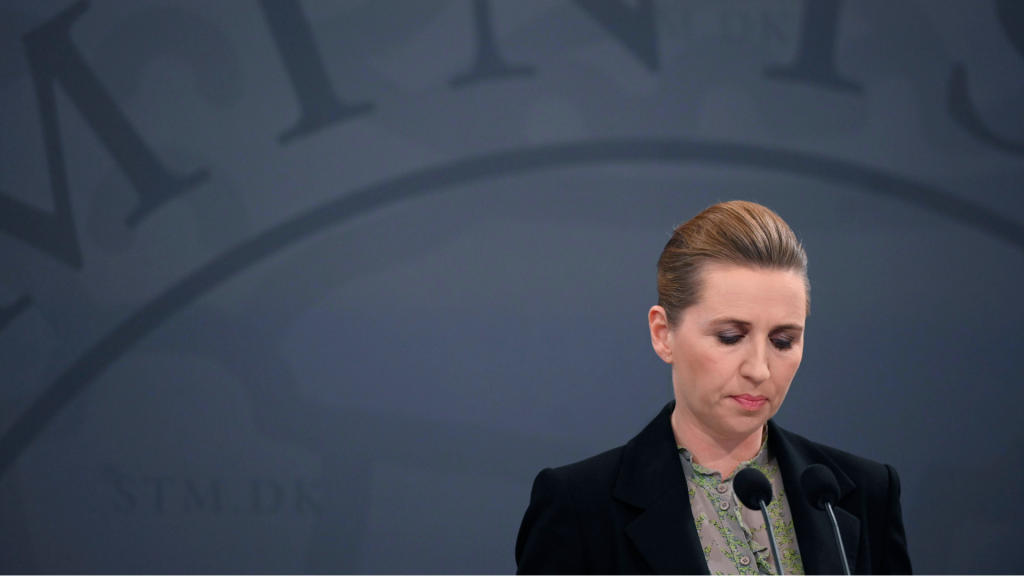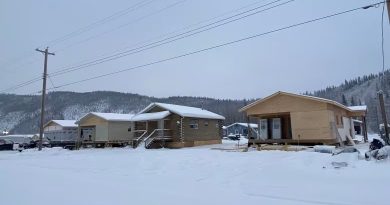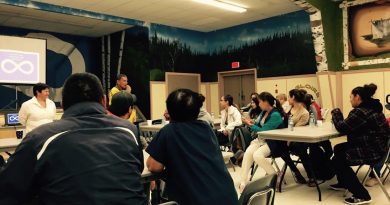Danish PM apologizes to Greenlanders taken to Denmark as children in 1950s

Danish Prime Minister Mette Frederiksen apologized this week to Greenlanders taken to Denmark as children in the 1950s.
“I have been following the case for many years, and I am still deeply touched by the human tragedies it contains,” Frederiksen said in a statement on the Government of Denmark’s website. “The consideration for the children was set aside. So they lost the ties to their families and lineage, their life history, to Greenland and thus to their own people.
“We cannot change what has happened. But we can take responsibility and apologize to those we should have taken care of but failed.”
Frederiksen made the comments on the day Denmark and Greenland’s Home Rule Government released a comprehensive report on the 22 children that were taken to Greenland in 1951 in what started out as a plan to educate orphans in Danish culture and language, but was expanded to where orphans became the minority in the initiative.
“The majority [of the children] had a mother or a father,” the report says. “Therefore it became relevant to obtain consent from still-living parents. For about half of the children, it appears explicitly that the parents agreed, while for the others we can not know if that was the case. Furthermore, there are doubts as to the extent to which the parents surveyed understood the full extent of the proposal.”
Social experiment to create an educated elite
The report outlines that the initiative was intended to educate the children in Danish language and culture so they could return to Greenland as adults and make up an educated elite.
And although the report found that none of the children were mistreated in their Danish foster families and that many of the children had close relationships with their foster families into adulthood, the children still described the pain of being separated from their language, culture and real families, and being fearful of being in a new environment where they didn’t know what was going to happen to them and why.

Some of the children lost their ability to speak Greenlandic in their foster families, after which authorities recommended that the foster families adopt the children. Those involved in the plan worked with Greenlandic authorities to gain consent from parents and guardians, although the report said it is not clear whether the implications of the adoptions were fully understood.
“There are indications that not all parents understood the significance of Danish adoption, and that unlike Greenlandic adoption custom, it meant a clean break,” the report says.
“Loneliness, alienation and rootlessness”
And although press coverage at the time portrayed the children has happy and thriving it became clear as time went on that the experience was harmful to the children, with some of those returning to Denmark no longer able to speak their language and no longer considered by many in the territory to be “real Greenlanders.”
“Overall, there’s a clear picture that a very large part of the 22 had to struggle with deep social and human problems in life,” the report said.
“The loss of the family stands in all memories as the most painful experience. The children experienced being abducted from their family without knowing why and how long, and even for those who returned to Greenland, the breach became permanent due to the language barrier…
“The children’s stories are imbued with experiences of loneliness, alienation and rootlessness, and of a lost, divided and ambivalent identity. None of this was the intention of the experiment that the authorities and organizations put in place, but one can not dismiss the actual consequences.”
Learning from the past

Greenland’s Prime Minister Kim Kielsen said the story was a difficult but important one for Greenland and Denmark to learn from.
“It touches me deeply to read about the fate of the 22 children,” Kielsen said in a news release. “Their special upbringing had major consequences for their relationship with their family and society and not least for their identity as Greenlanders.
“Today [Greenland and Denmark] stand as equal parties, who together look back in history and feel and see the consequences of the political decisions of the time. We have and will always learn from our common story and from both the good and the sad sides of history.”
In a statement published on the Government of Greenland website, Frederiksen said she had written personal letters to the six surviving adults of the initiative, apologizing to them and the 16 others involved in the experiment as children.
Greenland was a Danish colony until 1953 and is now is an autonomous territory within the Kingdom of Denmark.
Write to Eilís Quinn at eilis.quinn(at)cbc.ca
Related stories from around the North:
Canada: COVID-19 delays delivery of apology to Inuit residential school survivors in Atlantic Canada, Eye on the Arctic
Finland: Finnish gov agrees to formation of Sámi Truth and Reconciliation Commission, Yle News
Norway: The Arctic railway – Building a future or destroying a culture?, Eye on the Arctic
Sweden: Sami in Sweden start work on structure of Truth and Reconciliation Commission, Eye on the Arctic
United States: Alaska reckons with missing data on murdered Indigenous women, Alaska Public Media



